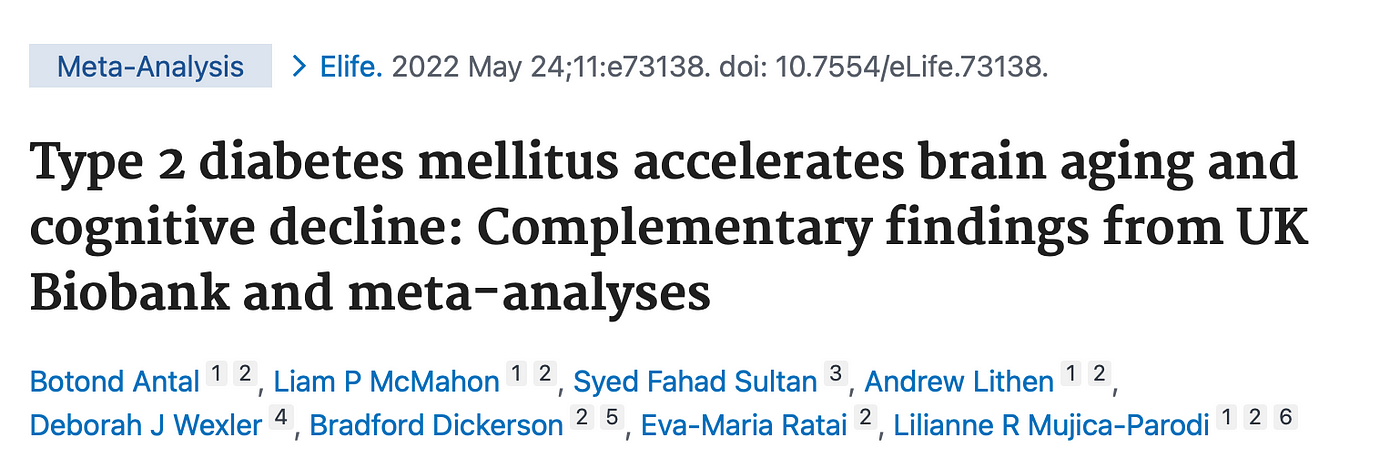A review of the week’s plant-based nutrition news 26th June 2022
This week I cover studies on diet, lifestyle and cognitive decline, plant-based diets and gastrointestinal cancers, vitamin and mineral supplements for disease prevention and the UK Government policy paper on food.

PHYSICAL ACTIVITY AND FRUIT AND VEGETABLE CONSUMPTION FOR BRAIN HEALTH: I have covered a few studies this year on diet, lifestyle and brain health. Evidence is fast accumulating that a significant proportion of cases of dementia could be prevented or delayed by addressing diet and lifestyle risk factors and by optimising cardiometabolic health. Find my recent summary here.
This new study includes 4440 Taiwanese adult participants who were above the age of 53 years in 1999 and specifically examines the impact of physical activity and fruit and vegetable consumption on cognitive function. After 16 years of follow-up, the results showed that higher intake of fruit and vegetables was associated with a 40% lower risk of cognitive decline, while higher physical activity was associated with a 60% reduction in risk. The combination of high fruit and vegetable intake and high physical activity compared to low levels was associated with a 63% lower risk of cognitive decline. A history of diabetes, stroke, and depression was associated with a 67–119% increase in risk. In this study, high intake of fruit and vegetables was considered as >/= 10 times per week and high levels of physical activity as >/= 6 times per week.
The reasons for these positive findings are likely to be that both a healthy diet and physical activity address key mechanisms in the development of cognitive decline and dementia. Namely, inflammation, oxidative stress, glucose dysregulation, dysbiosis and dyslipidaemia.
The authors conclude ‘We strongly advocate that older adults should have an adequate amount of regular physical activity practice every day and prepare a specific amount of fruits and vegetable intake for each meal. These personal actions are safe, effective, and economical approaches to health promotion and disease prevention’.
A further study (for which I do not have full access) assessed the impact of healthy lifestyle factors on dementia risk in black and white Americans of low income. The five lifestyle factors assessed were tobacco smoking, alcohol consumption, physical activity, sleep and diet quality as per the healthy eating index. The results showed that individual healthy lifestyle factors were associated with 11%-25% reduced risk of dementia. The composite lifestyle score showed a dose-response association with up to 36% reduction in risk of dementia, a finding that was independent of race, education, income and underlying chronic conditions.
All in all, these are very positive findings given the lack of effective pharmaceutical interventions for those living with dementia.

TYPE 2 DIABETES AND BRAIN HEALTH: This is a pretty important paper as it clearly documents the adverse impact of a diagnosis of type 2 diabetes on brain health. The study includes data from 20,314 participants of the UK Biobank and assessed the impact of a diagnosis of type 2 diabetes on cognitive function (as evidenced by testing for abstract reasoning, executive function, processing speed, reaction time, and numeric memory) and brain imaging (MRI). The study included 1012 participants with type 2 diabetes and 19,302 healthy controls aged 50 to 80 years. The duration of type 2 diabetes ranged from 0 to 31 years (mean 8.5); 498 were treated with metformin alone, while 352 were unmedicated. The researchers then went on to perform a meta-analysis evaluating 34 cognitive studies (N = 22,231) and 60 neuroimaging studies: 30 of type 2 diabetes (N = 866) and 30 of ageing (N = 1088).
The results clearly show that compared to healthy controls, people with type 2 diabetes have deficits in cognitive performance, even after controlling for age, sex, education, and hypertension. These findings were supported by the meta-analysis. Deficits in cognitive performance were also accompanied by marked brain atrophy (shrinkage) in those with type 2 diabetes compared to age-matched healthy controls. The authors conclude ‘our results suggest that type 2 diabetes and its progression may accelerate pathways associated with typical brain ageing. By the time type 2 diabetes is formally diagnosed, neuronal insulin resistance may have already resulted in significant damage’.
Once again, prevention and remission of diabetes has to be the key to preventing cognitive decline. This expert statement on diabetes remission is a really important summary of the evidence and clearly outlines that a fibre-rich, plant-based diet is the optimal approach for achieving diabetes remission.

PLANT-BASED DIETS AND GASTROINTESTINAL CANCERS (GI): This huge study assesses the impact of a plant-based diet on the risk of GI cancers and has pretty robust findings that should form the basis of cancer prevention guidelines.
The report is a meta analysis of 49 studies, both cohort (n=18) and case-control (n=31), with >3 million participants mainly from Europe, North America and Asia and assessed the impact of a plant-based diet on the risk of GI cancers. The term ‘plant-based’ included several dietary patterns that emphasise the consumption of healthy plant foods with the reduction or avoidance of animal-derived and processed foods. The study included participants on vegan, semi vegetarian (eat dairy, eggs and some red meat, poultry, and fish >= 1 time/month but <1 time/week), prudent (high intakes of vegetables, fruit, noodle, potatoes, soy products, mushroom, and seaweed), vegetarian, Mediterranean and pesco-lacto-ovo-vegetarian diets.
The results showed that a plant-based diet was protective against the development of GI cancers with a risk reduction in the order of 20–30% Plant-based diets reduced the risk of pancreatic cancer by 29%, colorectal by 24%, rectal by 16%, colon by 12%, gastric by 19%, liver by 39%. The risk reduction was similar in males and females and between geographical areas. The impact of a vegan diet was assessed separately and found to be similar to other plant-based dietary patterns.
There are many reasons why those eating a diet composed of mainly minimally processed plant foods may have a reduced risk of GI cancers. This includes positive impacts on the gut microbiome, reduced inflammation and oxidative stress, higher exposure to anti-cancer compounds found in plant foods with lower or no exposure to carcinogens found in meat. The key seems to be the avoiding or greatly limiting the consumption of meat. This is in line with the current World Cancer Research Fund cancer prevention guidelines that suggest limiting meat consumption to no more than 3 portions per week. A recent analysis from the UK biobank study reported that meat-free diets were associated with a lower risk of total cancer, with large reductions in the risk of breast and prostate cancers.
On a side note, there is a call for a more precise definition of the term ‘plant-based’ diet. For some it is a term that is interchangeable with ‘vegan’, but when assessing the use of the term in the medical literature at least 50% of publications are referring to diets that include animal-derived foods. This is the case with the current study in which ‘plant-based’ has been used to describe a number of different diet patterns which reduce or eliminate animal foods to a varying degree.

TIME TO DITCH THE SUPPLEMENTS: The global supplement industry is worth billions of pounds. It is appealing to think that consuming vitamins and minerals in supplement form may provide additional antioxidant and antiinflammatory effects above and beyond those found from food sources. The scientific evidence to support the use of supplements however is far from clear. To some extent, this provides a distraction from concentrating on consuming a healthy diet, which has decades of data to support its benefits. Micronutrients in isolation may act differently in the body than when naturally packaged with a host of other dietary components.
The US Preventive Services Task Force (USPSTF) has updated its recommendation about the use of supplements to prevent cardiovascular disease or cancer in otherwise healthy non-pregnant adults. This updated recommendation is based on a new evidence report and systematic review of 84 randomised controlled studies, including 52 new studies since the last report. It is assumed that the participants in the studies included did not have any specific nutrient deficiencies but we can not be certain of this. Supplements considered included beta-carotene, vitamins A, E, D, B12, B3, B6, folate, calcium, selenium, either individually or in combination.
The USPSTF concluded that the current evidence is insufficient to assess the balance of benefits and harms of the use of multivitamin supplements, single supplements or most paired supplements, for the prevention of cardiovascular disease or cancer. The USPSTF specifically recommends against the use of beta carotene supplements for prevention of cardiovascular disease or cancer because of a possible increased risk of total mortality, cardiovascular mortality, and lung cancer. The USPSTF also specifically recommends against the use of vitamin E supplements for prevention of cardiovascular disease or cancer because it probably has no net benefit in reducing mortality, cardiovascular disease, or cancer. Vitamin A use might increase the risk for hip fracture, that vitamin E use might increase the risk for haemorrhagic stroke, and that vitamin C or calcium use might increase the risk for kidney stones.
The only association that might be of benefit is between multivitamin use and cancer. However, we don’t know what nutrients are included in the term ‘multivitamin’ and the effect size is small; a 7% relative reduction in the incidence of cancer. That means you’d need to treat 500 people with a multivitamin to avoid one case of cancer.
Therefore, the overall conclusion is that the current evidence does not support the use of any of the supplements assessed for prevention of cardiovascular disease or cancer. Of note, this does not include pregnancy, when folic acid supplementation is recommended for all women, and in situations of nutrient deficiency, when of course supplementation is crucial. In addition, for those of us on a fully plant-based diet, vitamin B12 needs to be supplemented and consideration given to intakes of vitamin D and iodine.

A DISAPPOINTING NEW POLICY PAPER: I shouldn’t be surprised, but the UK Government have failed to recommend the changes necessary to transition our food system into one that is both healthy and sustainable. Not only has it reversed its own plans to reduce access to and advertising for foods high in salt, fat and sugar (a.k.a ultraprocessed foods), the new policy paper is a hugely watered down interpretation of the National Food Strategy, essentially dropping many of the recommendations. The emphasis remains on personal responsibility, when the evidence clearly shows that we need a systems approach to improving diet quality and tackling chronic conditions. The food environment has a huge impact on individual behaviour and without addressing this, real change is unlikely to happen.
To me it seems like ‘business as usual’. There is no recommendation to reduce meat consumption but rather a focus on more research on the ‘use of feed additives and materials that can reduce methane emissions from livestock’ and using livestock to benefit the environment. It recommends more investment in the seafood industry and aquaculture. Boosting fruit and vegetable production is of course welcome but these healthy foods also need to be more accessible and affordable for those that need them the most.
The policy paper seems to be in stark contrast to another Government document ‘Climate and health; applying All Our Health’, which calls for health professionals to support patients to transition to healthier diets, favouring plant sources of protein over animal sources.
Please follow my organisation ‘plant-based health professionals UK’ on Instagram @plantbasedhealthprofessionals and facebook. You can support our work by joining as a member or making a donation via the website.
